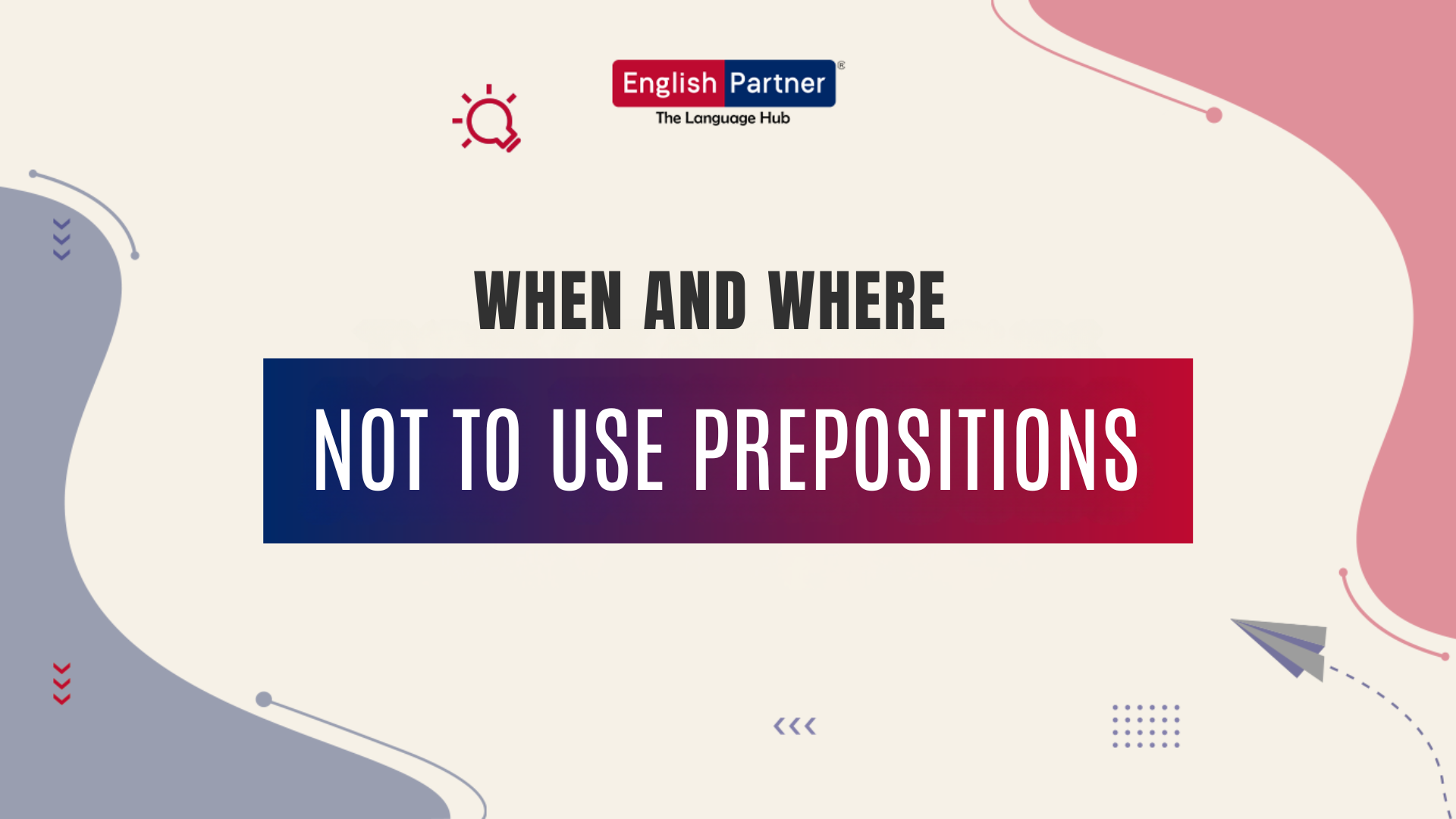
Imagine someone says, “ I am going on a trip”.
Do you find it odd that the preposition “on” is used? Wouldn’t
“in a trip” (or “on a trip”) feel more natural or appropriate in English?
Rather? Do you ever ponder whether to use “centred on” or “centred around” as a preposition?
Now, let us know what is a preposition and learn to use it right.
Do we use the preposition “protest about or (against) injustice,” or do we leave it out completely? When there are variations, are they all equally acceptable, some better than others, or should some be avoided?
Preposition is a part of speech. In particular, a preposition serves as a connector, joining one noun or pronoun to another noun or pronoun in a phrase. It also emphasises the relationship between the other word and that noun or pronoun (its object). As a result, a preposition is always contained within a phrase, which is a collection of words known as a prepositional phrase.
Although prepositional phrases might consist of a million different words, they usually follow the same structure:
a preposition, a determiner, one or more adjectives, and a pronoun or noun. This whole term, inturn, takes on a modifying role.
Prepositions usually suggest direction, location, and time relationships, but they can also convey other kinds of relationships.
Although prepositions are essential for coherence and clarity in writing and speech, there are several situations in which they may be unnecessary, or erroneous. Gaining an understanding of these circumstances can help you communicate more clearly and use better grammar.
Well, let us look at when and where to avoid using prepositions in English in this blog post.
Some English verbs are referred to as ‘verb-preposition collocations’, in which the verb itself expresses an action, location, or direction. Redundancy may result from prepositions being added to these verbs.
Example,
Incorrect: She discussed about the new proposal.
Correct: She discussed the new proposal.
Incorrect: I will contact with you tomorrow.
Correct: I will contact you tomorrow.
Incorrect: He entered into the room.
Correct: He entered the room.
Prepositions can be omitted without creating misunderstanding in more informal or conversational English, particularly when it comes to specific sets of idioms. In spoken language, this is frequently acceptable, even though it might not always be technically perfect in formal writing.
Examples of Informal Usage:
Informal: Where are you at?
Formal: Where are you?
Informal: What are you talking about?
Formal: What are you talking?
Prepositions are not necessary for some adjectives to generate a complete concept. Actually, it is improper or difficult to combine these adjectives with a preposition. Grammar mistakes can be avoided by understanding when prepositions should not come after adjectives.
Incorrect- Preposition + Adjective Combinations:
Incorrect: She is interested on learning new languages.
Correct: She is interested in learning new languages.
Incorrect : My singing is good.
Correct: I can sing well.
Incorrect: They had been working all day and were exhausted.
Correct: After working all day, they were exhausted.
A phrasal verb is a verb that has been coupled with an adverb or preposition to produce a particular meaning. However, in certain situations, certain phrasal verbs don’t need prepositions.
Incorrect: She is trying to get a new job.
Correct: She is searching for a new position.
Incorrect: They went by the park.
Correct: The park was traversed by them.
Tips for using Prepositions Effectively:
Read Aloud: You can spot improper phrasings and unnecessary prepositions by reading aloud.
Edit ruthlessly: Remove any words from your statement that don’t contribute anything worthwhile.
Practise, practise, practise: Your ability to identify and steer clear of unnecessary prepositions will improve with increased writing.
You can make your writing more clear and concise by using these pointers and being aware of typical prepositional errors.
In conclusion, it’s important to utilise prepositions cautiously even if they are necessary for effective communication. You may improve the clarity of your writing and steer clear of superfluous clutter by being aware of the subtleties of prepositional usage. You may improve your writing and make sure that your point is understood by being aware of typical mistakes and using the advice given. Know More!!
At English Partner, we train you to be a successful personality with effective communication. Our comprehensive training will enable you to communicate effectively in any situation.
A preposition is a word that shows the relationship between a noun or pronoun and another word in a sentence. It usually indicates location, direction, time, or other relationships.
You should avoid using prepositions when they are redundant or unnecessary. This can often happen with phrasal verbs, certain adjectives, and in informal speech.
Prepositions after certain verbs: Using unnecessary prepositions after certain verbs.
Incorrect: “She reminds me of about her mother.”
Correct: “She reminds me of her mother.”
Yes, placing a comma after introductory words or phrases helps the sentence flow better and makes it easier to read.
